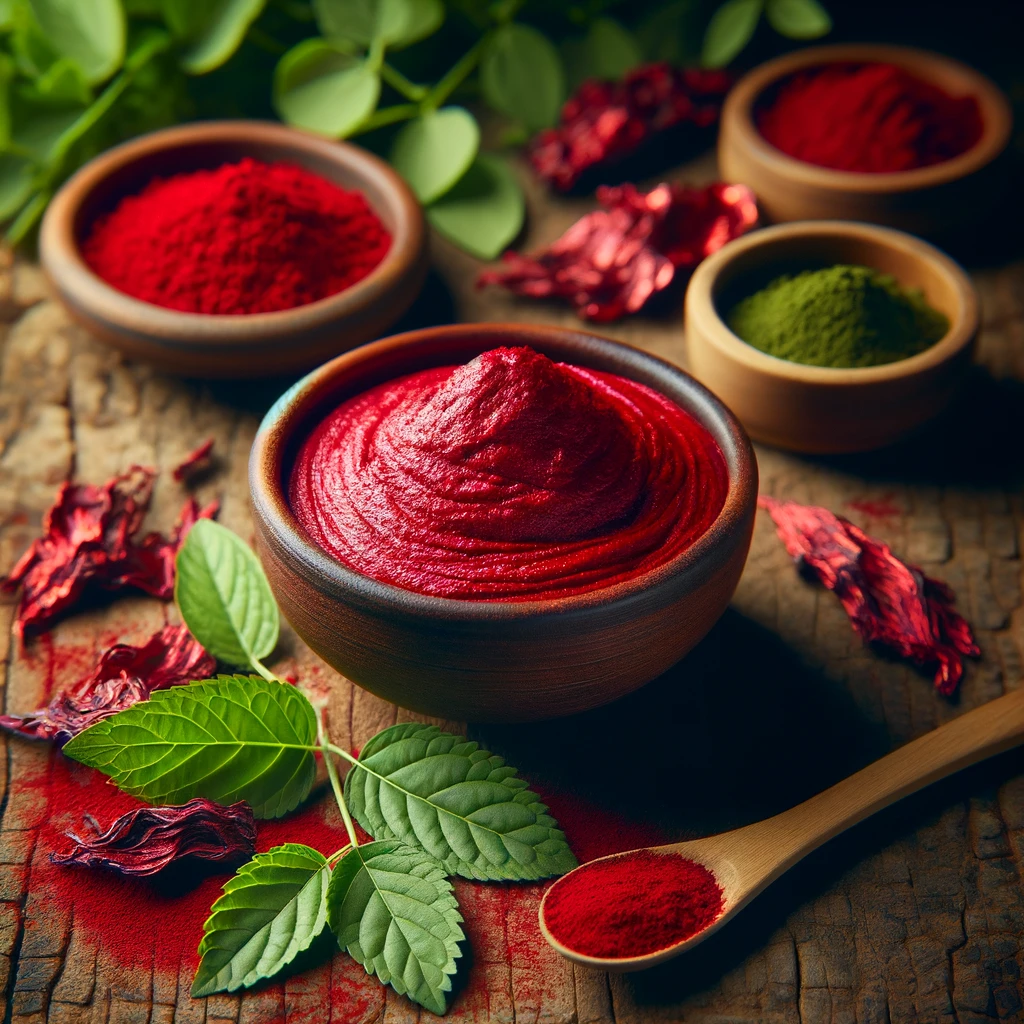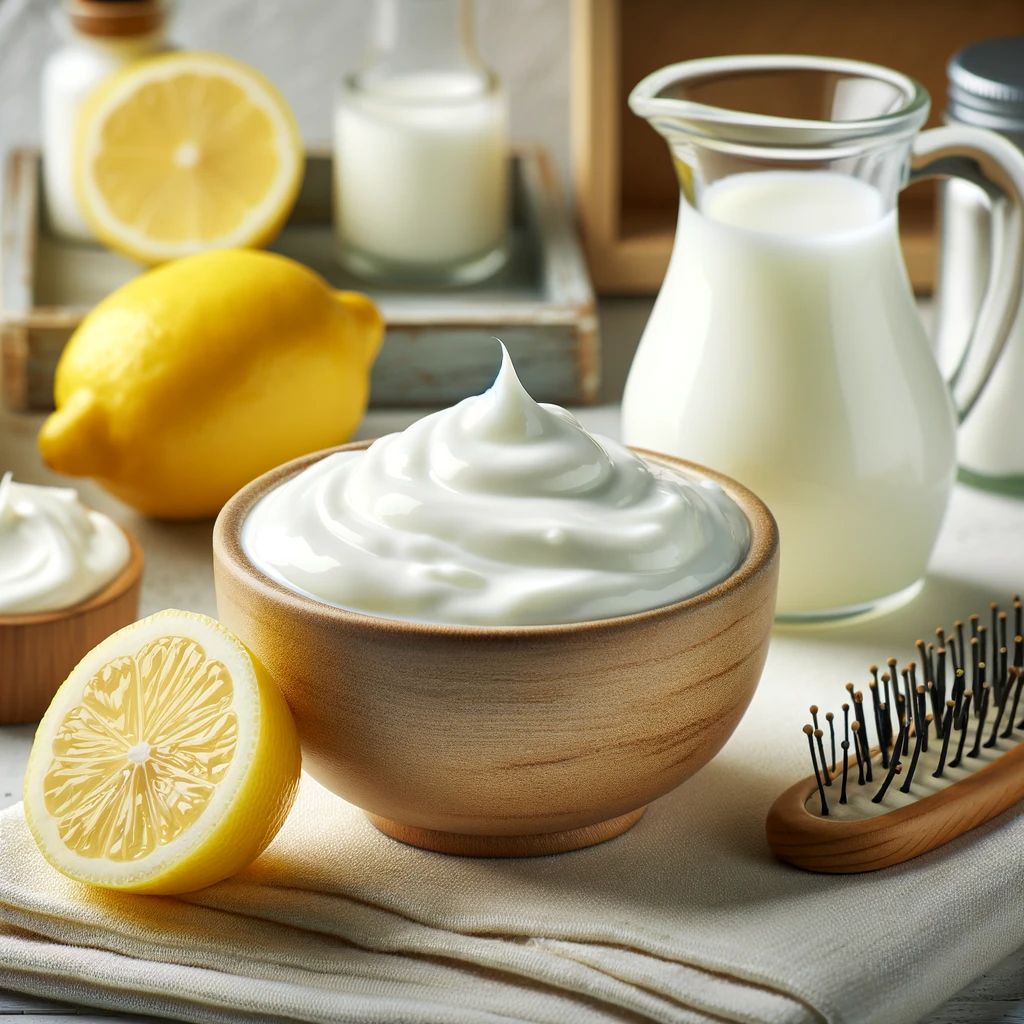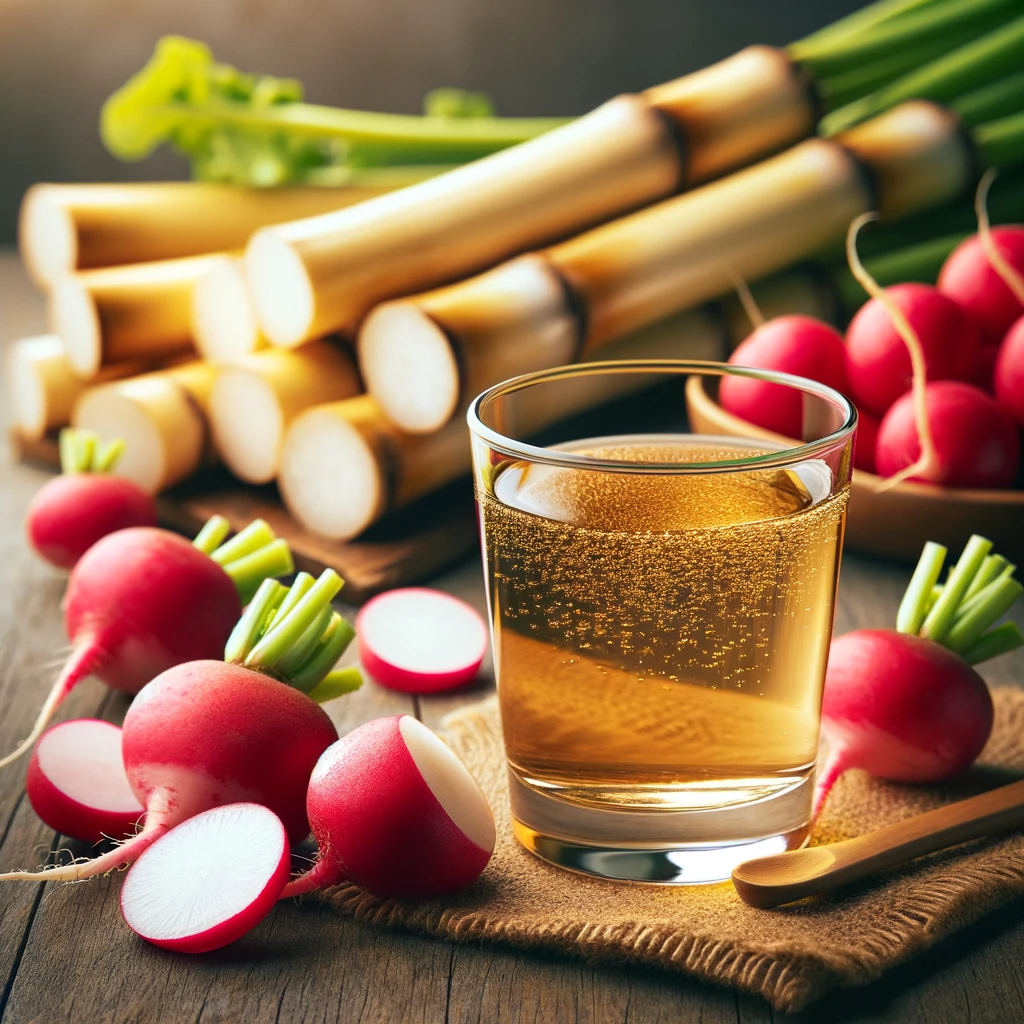
For centuries, henna has been celebrated for its ability to dye hair in a range of earthy tones, from reddish to deep brown, depending on the original hair color and the ingredients mixed with it. This recipe elevates the traditional henna application by incorporating red tea, enhancing the reddish tones and offering a unique hue that can captivate the eye. This guide aims to provide a comprehensive approach to using these natural ingredients to achieve a beautiful reddish hair color, suitable for anyone looking to explore the benefits of natural hair dye.
Things Needed
- 1 cup of natural Indian or Egyptian henna powder
- 4 tablespoons of red tea leaves
- Hot water (enough to blend the mixture into a dough-like consistency)
Additional tools:
- A non-metallic bowl for mixing
- A spoon or spatula for stirring
- A shower cap or plastic wrap
- Gloves to protect your hands from staining
- An applicator brush (optional for ease of application)
Steps to Prepare
- Boil the Red Tea: Begin by boiling the red tea leaves in water for a few minutes. This process extracts the color from the tea, creating a potent dye solution. After boiling, turn off the heat and allow the tea to steep for 5 to 10 minutes.
- Mix Henna and Tea: Gradually add the red tea solution to the henna powder in a non-metallic bowl. Stir continuously until the mixture achieves a smooth, dough-like consistency. If the mixture is too thick, add more tea; if too runny, add a bit more henna powder.
- Let the Mixture Rest: Allow the henna mixture to sit for an hour or so, enabling the dye to release. This step is crucial for achieving the full color potential of the henna.
How to Apply
- Section Your Hair: Divide your hair into small sections to ensure even application. Starting from the roots, apply the henna mixture generously using your hands (with gloves) or an applicator brush.
- Cover Your Head: Once all sections are covered, wrap your head with a shower cap or plastic wrap. This keeps the henna moist and warm, enhancing the dye’s ability to penetrate the hair shafts.
- Wait: Leave the henna in your hair for at least two hours. For a deeper color, you can extend this period up to four hours or more, depending on your preference.
- Rinse: Rinse your hair thoroughly with warm water until all the henna is washed out. Avoid using shampoo immediately after rinsing as it can strip the color. Instead, apply a moisturizing conditioner or a deep hair mask to nourish your hair.
Benefits
- Natural Coloring: Henna provides a safer alternative to chemical hair dyes, minimizing the risk of allergic reactions and hair damage.
- Conditioning: Henna naturally conditions your hair, leaving it soft, shiny, and manageable.
- Scalp Health: The antimicrobial properties of henna help maintain scalp health, potentially reducing issues like dandruff.
Precautions
- Allergy Test: Conduct a patch test before full application to ensure you’re not allergic to henna.
- Color Variability: The final color can vary based on your original hair color, the henna’s quality, and how long you leave the mixture in your hair.
Tips
- Use Fresh Ingredients: For the best results, ensure your henna powder and red tea are fresh and of high quality.
- Heat the Mixture: Applying the mixture while it’s slightly warm can enhance the dye uptake.
- Avoid Metal Utensils: Metal can react with henna, affecting the color outcome. Use plastic, glass, or ceramic bowls and spoons instead.
Conclusion
Embracing the natural route for hair coloring can be a rewarding and health-conscious choice. This recipe for achieving a reddish hair color with henna and red tea not only offers a vibrant hue but also nurtures your hair with natural conditioning properties. While the process might seem more labor-intensive than using boxed dyes, the benefits of minimized chemical exposure and enhanced hair health are compelling reasons to give it a try. By following this guide, you’re not just coloring your hair; you’re embracing a centuries-old tradition
of natural beauty care, tailored for the modern enthusiast.

